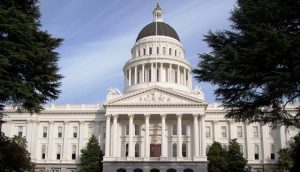Columbus Day, the second Monday in October, is a state holiday as well as a court holiday in California state court. Native American Day, the fourth Friday in September, is only a state holiday. An assembly bill winding its way through the legislature would turn that around in 2022. This has great significance when calendaring California state court deadlines.
Calendaring Deadlines: Court Days vs. Non-Court Days
Court holidays (non-court days) play a key role in the calculation of California state court deadlines. Certain time periods are based on court days, e.g., an opposition to a motion is due nine court days prior to the hearing. Where the last day to perform certain acts falls on a non-court day, the deadline to perform is typically extended to the next court day. To calendar correctly, then, one must distinguish court days from non-court days. This requires keeping track of court holidays.
State Holidays vs. Court/Judicial Holidays
Court holidays, or judicial holidays, as they are referred to in the statute, are designated in Code of Civil Procedure section 135. By reference, the statute initially incorporates as court holidays the state holidays listed in Government Code section 6700. Those include, for example, Martin Luther King, Jr. Day, Admission Day, Native American Day, Columbus Day, Veteran’s Day, etc. The current statute then excludes Admission Day and Native American Day. Today, then, Native American Day is not a judicial/court holiday, but Columbus Day is. [If anything rings a bell here, it may be the accidental court holiday created in 2015 when the legislature added Native American Day to the list of state holidays in Gov’t. Code section 6700, but neglected to add it as an exception in C.C.P. section 135.]
Assembly Bill 855, introduced by Assembly member James C. Ramos (D-Highland), would reverse that. If passed this year as currently drafted, effective January 1, 2022, the language excepting Native American Day in Code of Civil Procedure section 135 would be deleted, and language adding Columbus Day as an exception would be inserted, as follows:
“Every full day designated as a holiday by Section 6700 of the Government Code, … is a judicial holiday, except September 9, known as “Admission Day,”
the fourth Friday in September, known as “NativeAmerican Day,”[the second Monday in October, known as “Columbus Day,”] …”
Best Practices Now
This is highly likely to pass and become effective January 1, 2022. So far the bill, supported and sponsored by the Judicial Council, has received unanimous bipartisan support in the assembly. On April 26, 2021, it passed in the assembly by a 75/0 vote and was ordered to the senate. So, you might want to keep this very likely change in mind if you are calendaring deadlines into 2022. For example, to be on the safe side:
- When calculating a notice period, count both Columbus Day and Native American Day as holidays/non-court days. If, as is expected, Columbus Day disappears, you will have given an extra day’s notice. No harm. If Native American Day becomes a court holiday, you will have calendared correctly.
- When calculating a deadline for you to act within a particular time period, do not count either as holidays, i.e., do not give yourself an extension for the last day falling on a holiday. That way, regardless of what happens, you will not have missed your deadline.
I will be eagerly watching the progress of this bill. Passage will require revisions to my California civil litigation handbook, Litigation By The Numbers, my video, Calendaring in State Court: Steps and Traps for the Unwary, and the content of my California Procedures course at UC Berkeley Extension. Stay tuned!

